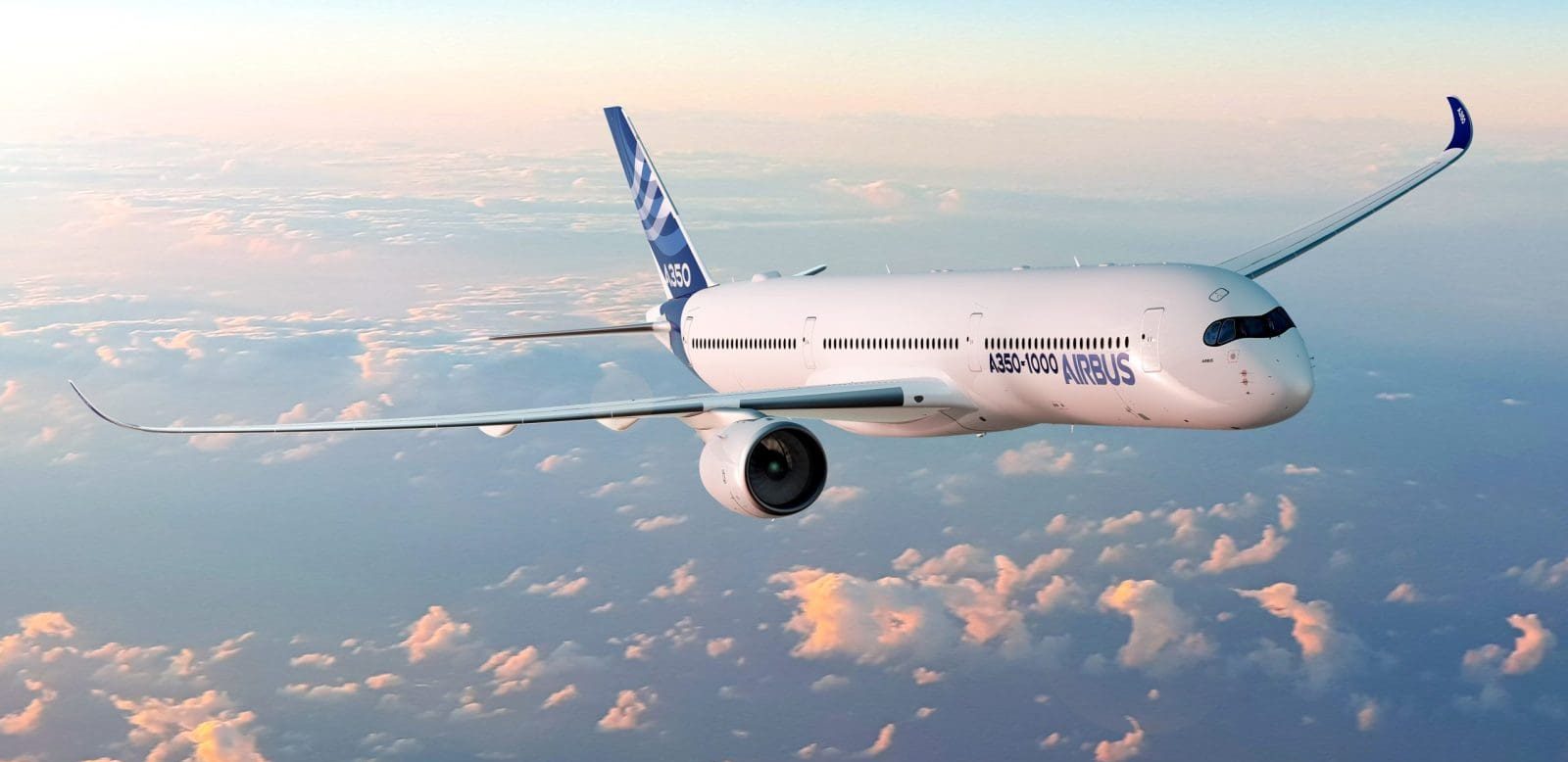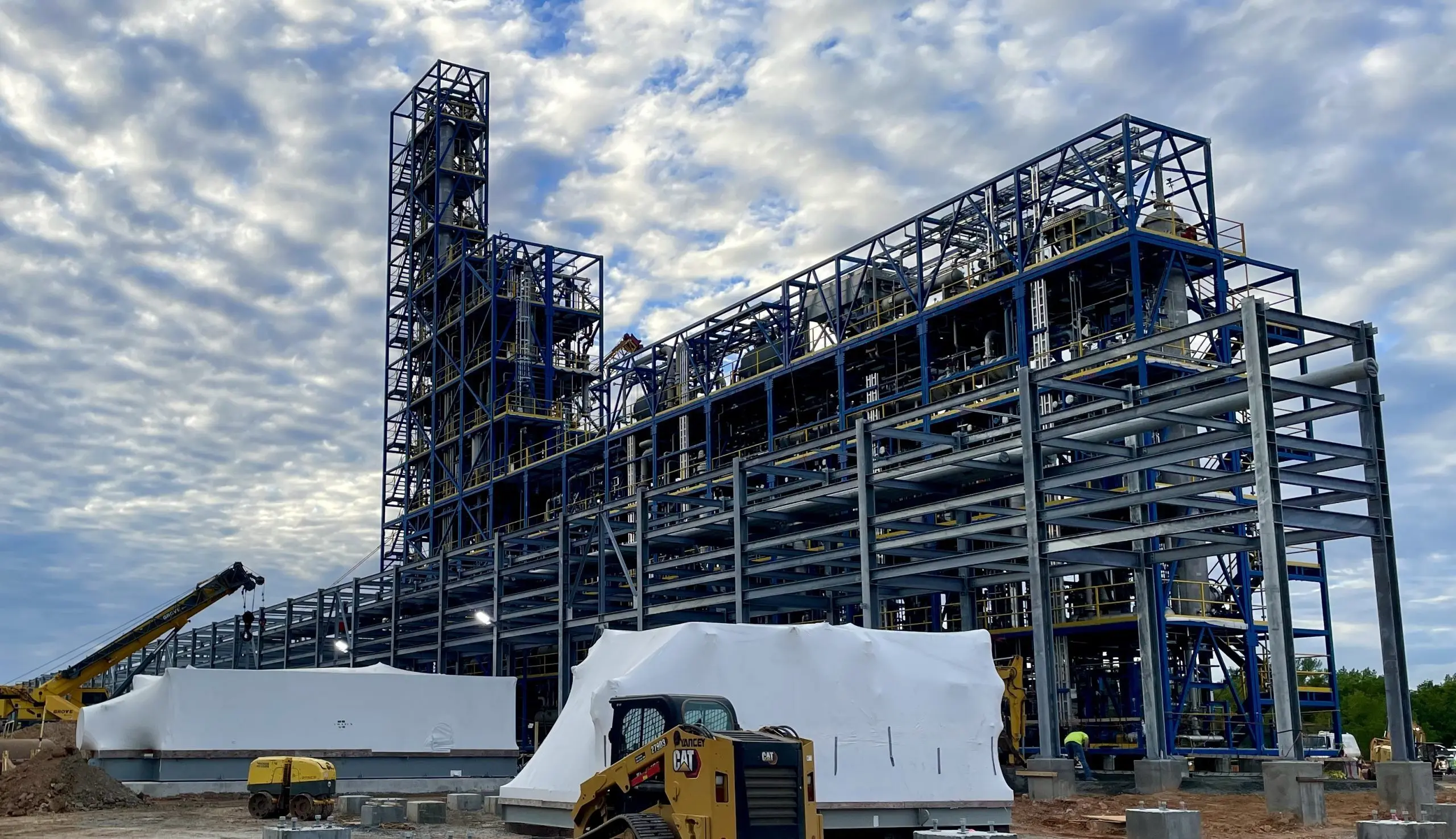

GLOBAL plane producer Airbus is urging swift and robust laws to help the locally-produced sustainable aviation gas (SAF) business, claiming it might convey vital financial advantages for Australian farmers.
SAF is produced utilizing a spread of non-fossil gas feedstocks, similar to oilseeds, crop residues, tallow and used cooking oil (UCO).
At the moment, Australia exports volumes of canola, tallow and UCO to be processed into SAF, biodiesel and different renewable fuels.
Airbus chief consultant for Australia and New Zealand Stephen Forshaw informed Grain Central that Australia had the “potential to be a renewable liquid fuels superpower”.
He mentioned this new business would offer “probably a brand new supply of vacation spot for what they’re producing, together with in some circumstances the waste that they’re presently deriving no worth for”.
“Prior to now have recognized that they produce a crop or no matter they’re producing on their farm for a designed goal, one goal that’s primarily associated to meals,” Mr Forshaw mentioned.
“What we at the moment are saying is that there’s a lot of issues…that may additionally provide Australia’s new liquid gas wants.”
Coverage essential to success
Australia is the eighth-largest client of aviation gas on this planet, utilizing about 10 billion litres annually, in addition to a major quantity of potential feedstocks.
Mr Forshaw mentioned laws could be key to make sure SAF could be produced in regional communities from Australian feedstock.
He mentioned getting the coverage setting proper was “completely crucial”.

Stephen Forshaw
“Our argument is that you simply’ve in all probability acquired 12 to 18 months to get these [policy] settings proper and, if you happen to don’t get it proper early, we are going to already be down the pathway of exporting all of our feedstock.
“I do know that there are different initiatives in Australia…that we aren’t immediately concerned in that…are ready for the federal government to settle the coverage earlier than they make the ultimate funding resolution.”
The Federal Authorities final month opened session on a roadmap for a low-carbon liquid gas business together with concepts for demand-side measures.
Its 2024-25 Price range featured $18.5 million over 4 years to develop a certification scheme for low-carbon liquid fuels and the inclusion of the business as a precedence for the $1.7 billion Future Made in Australia Innovation Fund.
Mandates to drive demand
Mr Forshaw mentioned Airbus “completely help” the introduction of enforceable obligatory minimal ranges for using SAF in jet fuels.
He mentioned obligatory ranges would create clear demand for the product and guarantee feedstock suppliers had a dependable market.
Mr Forshaw argued that laws, similar to mandates, would scale back the chance of initiatives “changing into challenged”, like current examples from Australia and abroad.
These embrace Oceania Biofuels abandoning its $500M Gladstone undertaking and Shell pausing development of its SAF Rotterdam facility.
Grain growers have additionally been burnt by renewable gas initiatives up to now, with the Dalby Bio-Refinery previously shopping for massive portions of sorghum to supply ethanol.
Nonetheless, the plant closed in 2020 after an absence of constant demand and excessive grain costs made the operation unviable.
Mr Forshaw mentioned “aviation can not decarbonise at scale some other manner within the brief to medium time period aside from utilizing SAF” which, alongside “the proper coverage settings”, would drive demand for the product.
Present undertaking
With associate Qantas, Airbus is investing in initiatives to kick-start home manufacturing of SAF.
The businesses have dedicated to collectively make investments US$200M into the market to “corporations seeking to contribute to begin up a SAF manufacturing ecosystem”.
A key funding is into Jet Zero Australia, an organization which is progressing a proposed SAF plant in Townsville.
Referred to as Undertaking Ulysses, it’s the most promising of all deliberate SAF developments, and is presently working by way of the Entrance-Finish Engineering and Design course of.
Jet Zero is focusing on annual manufacturing of 102 million litres of SAF and 11Ml of renewable diesel.
It’s anticipated that the plant would use agricultural by-products, most definitely sugarcane residues, as its feedstock.
Mr Forshaw mentioned a last funding resolution on the undertaking was anticipated by Q1 subsequent 12 months.
“We’re very pleased with how the undertaking is creating.
“There can be a number of points that the corporate wants to handle on the way in which by way of as a part of the front-end engineering design work that is happening and finally addressing these points is what’s going to lead the corporate to creating its last funding resolution.
“We like their pathway, we like their expertise and so they’re ticking a number of packing containers as they undergo.”

LanzaJet’s Freedom Pines facility in Georgia, US. LanzaJet is working with Jet Zero to progress the Townsville web site. The proposed facility can be 3 times the dimensions of the Georgia plant. Photograph: Airbus
Jet Zero Australia additionally lately introduced a joint-venture undertaking with Singaporean biofuel firm Aperion Bioenergy to develop low carbon-intensity feedstocks in Australia to assist meet the demand for renewable fuels.
Though Aperion is taken into account one of many largest UCO collectors in Asia, the partnership has signalled that it will examine the manufacturing of non-edible crops in addition to pathways for sourcing waste oils.
Each corporations will contribute capital to those targets, with Jet Zero anticipated to spearhead home funding in non-edible crop processing and refining.
They’ve additionally been awarded grant funding by Enterprise Singapore and the Australian Division of Overseas Affairs and Commerce to progress feasibility research on renewable feedstock manufacturing, processing, and refining.
Singapore instance
Australia imports over 90 p.c of its jet gas, and virtually all of its liquid gas necessities coming from Singapore.
In 2023, Finnish sustainable gas firm, Neste, opened a SAF plant in Singapore able to producing 1 billion litres per 12 months.
With no home feedstock sources, Singapore is reliant on imports.
Based on the Division of Agriculture, Fisheries and Forestry, at $392M, fats from purple meat animals was Australia’s most dear agricultural export to Singapore in 2023.
DAFF additionally reviews that for 2022-23, Australia’s whole inedible tallow exports exceeded $1B for the primary time, a results of excessive world oil costs and demand from biofuel producers.
Trending Merchandise










